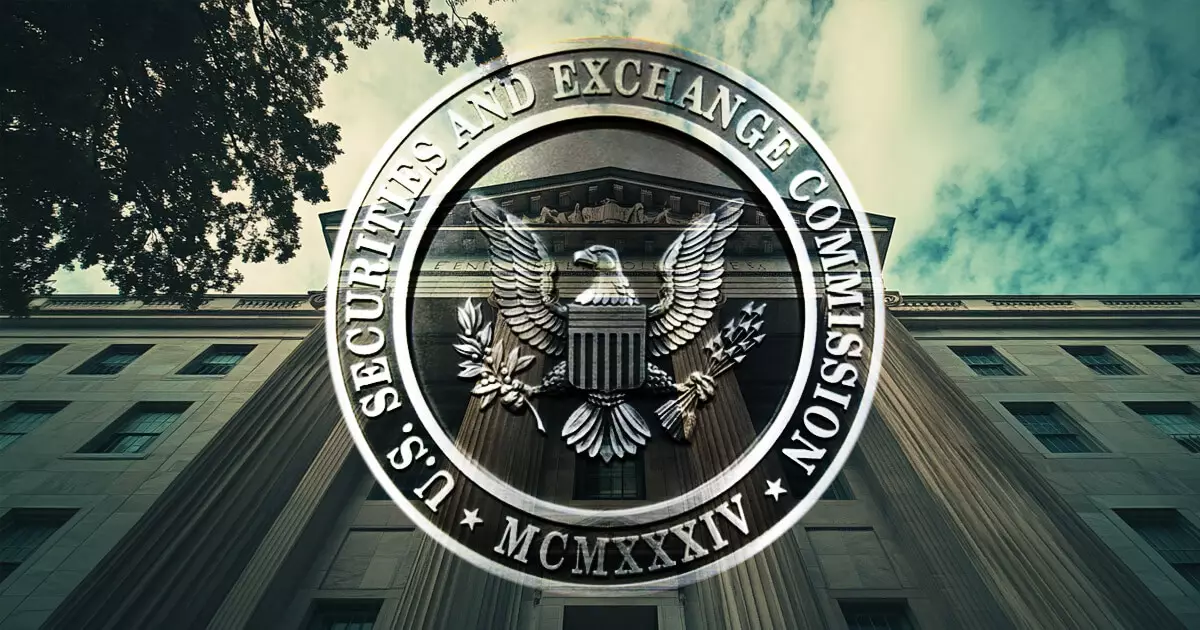The recent settlement between TrustToken and TrueCoin regarding their TrueUSD (TUSD) stablecoin paints a complex picture of regulatory challenges in the cryptocurrency sector. The U.S. Securities and Exchange Commission (SEC) charged these companies with engaging in unregistered sales of TUSD as investment contracts, leading to a substantial financial penalty of $700,000. Interestingly, TrustToken and TrueCoin opted for a no-admit/no-deny settlement, allowing them to sidestep litigation and the burdens it entails. Their decision underscores a strategic pivot, aiming to navigate a landscape fraught with regulatory uncertainty more effectively.
The SEC’s complaint highlights a significant oversight in how TUSD was marketed. From November 2020 to April 2023, the SEC asserts that TrustToken and TrueCoin misrepresented the stability of TUSD by claiming it was fully backed by U.S. dollars. In reality, a considerable portion of these reserves was routed into a speculative offshore fund, with alarming implications for the risk profile of TUSD.
Misrepresentation and Investor Risks
The crux of the SEC’s accusation centers on investor deception—a violation that carries severe repercussions in financial markets. TrueCoin and TrustToken’s decision to invest over half a billion dollars of TUSD backing in a speculative fund raises eyebrows. By September 2024, the SEC alleged that a staggering 99% of the reserves were tied to this fund. Such exposure not only contradicts investor expectations of stability but also implies the potential for significant market volatility.
Jorge G. Tenreiro, Acting Chief of the SEC’s Crypto Assets & Cyber Unit, expressed the urgency of registration in the cryptocurrency ecosystem for protecting unsuspecting investors. “This case is a prime example of why registration matters,” he noted, emphasizing that crucial information was obscured from the investors who trusted in the stability of TUSD. This incident exposes a broader issue in the cryptocurrency market: the necessity for transparency and adherence to regulatory frameworks that safeguard market participants.
As part of the settlement, TrustToken and TrueCoin face not only financial penalties but also injunctions that prevent future violations of federal securities laws. The fines include civil penalties, with TrueCoin bearing the brunt of the disgorgement costs, totaling over $370,000. Such financial repercussions reflect the SEC’s increasing enforcement actions across the cryptocurrency landscape, where fines amounted to a record-setting $4.68 billion in 2024, surpassing the previous year’s figures.
Market dynamics in the aftermath of the settlement illustrate investor sentiment fluctuating based on regulatory developments. Following the announcement, TUSD briefly experienced a de-peg from its expected value. It hovered just under its typical valuation, fluctuating between $0.98 and $0.999—a context indicative of the prevailing uncertainty surrounding stablecoins. As this event unfolded, TUSD’s market cap held steady near $494 million, demonstrating that while regulatory actions can induce market volatility, the fundamental robustness of the asset remains resilient within certain parameters.
The settlement reflects a broader trend of increasing scrutiny by regulators, particularly the SEC, towards the cryptocurrency market. As digital assets become more mainstream, the potential for investor manipulation and fraud necessitates a robust regulatory framework. Companies operating within this sector must be aware of their compliance obligations, as failure to adhere to these regulations can result in considerable financial and reputational harm.
Additionally, the urgency for more comprehensive regulations becomes increasingly apparent as issues of transparency and investor protection bubble to the forefront. The SEC’s investigations and settlements serve as warnings that the cryptocurrency industry must prioritize integrity and compliance to preserve investor confidence.
The settlement between TrustToken and TrueCoin highlights the delicate balance between innovation and regulatory compliance in the cryptocurrency space. As the sector evolves, so too must the frameworks that govern it, ensuring that investor trust is not compromised. Ultimately, while the penalties may provide a temporary setback for these companies, they also catalyze a movement towards greater accountability, which may ultimately strengthen the market in the long run. The road ahead is challenging, yet it holds the potential to align the goals of cryptocurrency innovation with the imperative for investor protection.
















Leave a Reply